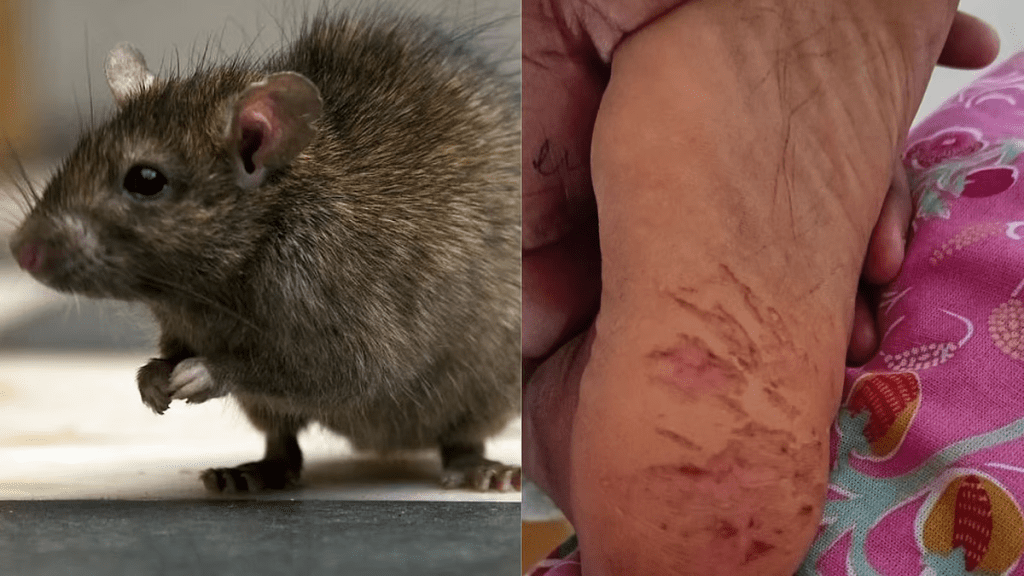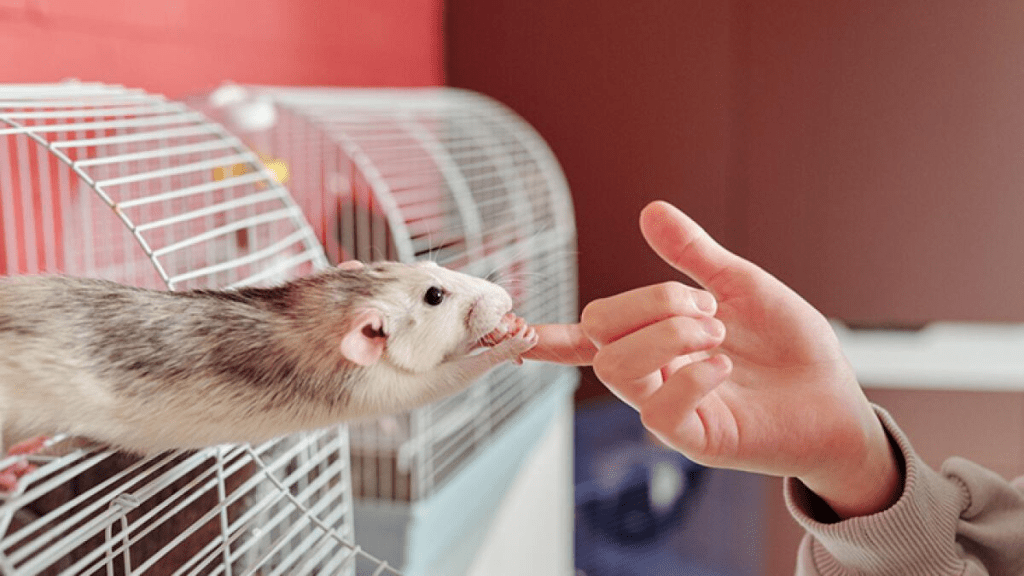On December 15, a seemingly minor event turned into a major health crisis for a couple. While attempting to chase down a rat, they were bitten on their fingers. What followed was a series of alarming health issues that eventually led to hospitalization and a diagnosis of rat-bite fever, or sodoku. This rare but serious condition highlights the dangers of rodent exposure and the importance of immediate medical attention when bitten by a rat.
What Happened After the Rat Bite?

The couple, initially unaware of the severity of the situation, treated the bite by washing their hands with soap and applying menthol oil. Despite this immediate response, their condition deteriorated over the next several days. Five days after the incident, both individuals developed high fevers, with one of them experiencing severe symptoms such as lethargy, delirium, and chills. The wound from the bite became swollen and painful.
After two days of self-monitoring at home, with no improvement, they sought medical attention at a district hospital. There, they received a tetanus shot before being transferred to Bach Mai Hospital in Hanoi for further care. It was at the Tropical Disease Center of Bach Mai Hospital that they were diagnosed with rat-bite fever (sodoku), a potentially deadly infection caused by bacteria transmitted through rat bites.
What Is Rat-Bite Fever?
Rat-bite fever (sodoku) is a bacterial infection caused by the spirochete spirillum minus, which is commonly found in the throats of rats. This spirochete is transmitted directly through rat bites, and in some cases, it can also spread through contact with rat urine or saliva. The infection can affect humans and cause a variety of symptoms, ranging from mild to severe, depending on the individual’s health and the timeliness of medical intervention.
Video : What Happens When a Rat Bites You
The incubation period for sodoku is between 3 days and 2 weeks, which means symptoms can appear within a few days to a couple of weeks after being bitten. Common symptoms of rat-bite fever include:
- High fever
- Chills in cycles
- Muscle and joint pain
- Headaches
- Sore throat
- Swollen lymph nodes
- Vomiting and fatigue
- In severe cases, delirium and coma
The Dangerous Complications of Rat-Bite Fever
While rat-bite fever may start with relatively mild symptoms, it can rapidly progress to serious complications if left untreated. In severe cases, untreated infections can lead to life-threatening conditions such as:
- Meningitis (inflammation of the protective membranes covering the brain and spinal cord)
- Hepatitis (liver inflammation)
- Pleuritis (inflammation of the lining around the lungs)
- Myocarditis (inflammation of the heart muscle)
- Arthritis (joint inflammation)
- Sepsis (a life-threatening body-wide response to infection)
- Endocarditis (infection of the heart valves)
Without prompt medical intervention, these complications can be fatal, making immediate medical attention crucial when symptoms appear after a rat bite.
How the Couple Was Treated
Fortunately, the couple received timely treatment at Bach Mai Hospital, where they underwent intensive care with an effective antibiotic regimen. After more than a week of treatment, their symptoms significantly improved, and they were discharged on December 31, 2024, with their health restored.

This case highlights the importance of seeking medical attention if bitten by a rat, even if the wound appears to be minor. Antibiotics are essential in treating rat-bite fever, and early intervention can prevent the development of serious complications.
How to Prevent Rat-Bite Fever
While infections caused by rat bites are relatively rare, they can be serious and even life-threatening. Prevention is key, especially for those living in areas with a higher risk of rodent exposure. Here are some essential steps to reduce the risk of rat-bite fever:
- Keep your home clean and well-ventilated: Rats are attracted to dirty and cluttered environments. By keeping your home clean, you reduce the chance of rats finding a place to live.
- Seal entry points: Make sure that windows, doors, and any other entry points are securely closed to prevent rats from entering your home.
- Remove food and water sources: Avoid leaving food out in the open and ensure there are no standing water sources in or around your home, as these attract rodents.
- Use traps or hire pest control: If you notice rats in your home or workplace, take immediate action to remove them through traps or professional pest control services.
- Be cautious in areas with known rat infestations: If you live in or visit areas known to have rodent problems, exercise caution. Wear protective gloves and shoes if handling items in these areas.
What to Do If You Are Bitten by a Rat
If you are bitten by a rat, it’s crucial to take immediate action to reduce the risk of infection. Here are the steps you should follow:
Video : Rat Bite Fever
- Clean the wound thoroughly: Wash the bite with soap and clean water immediately. Disinfect the area with an antiseptic solution.
- Apply pressure to stop bleeding: If the wound is bleeding, apply pressure with a clean cloth until the bleeding stops.
- Seek medical attention: Even if the bite seems minor, it’s essential to consult with a healthcare professional. A tetanus shot may be required, and your doctor may prescribe antibiotics to prevent infection.
- Monitor for symptoms: Keep an eye out for any symptoms of rat-bite fever, such as fever, chills, or swelling around the wound. If these symptoms appear, seek immediate medical help.
Conclusion: Stay Vigilant and Safe from Rat-Bite Fever
Rat-bite fever is a serious condition that can lead to severe health complications if not treated promptly. While the couple’s experience ended positively with timely medical care, it serves as a reminder of the risks associated with rodent exposure. By taking preventive measures, seeking medical attention if bitten, and recognizing the symptoms early, you can greatly reduce the risk of contracting rat-bite fever. Stay vigilant, especially in areas where rats are prevalent, and remember that a small bite can lead to significant health challenges if left unchecked.


